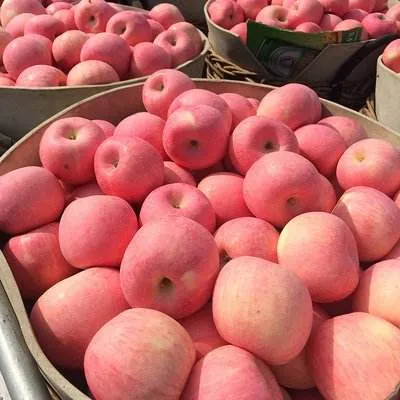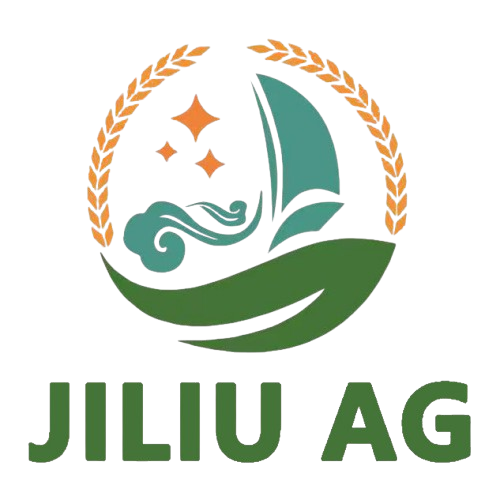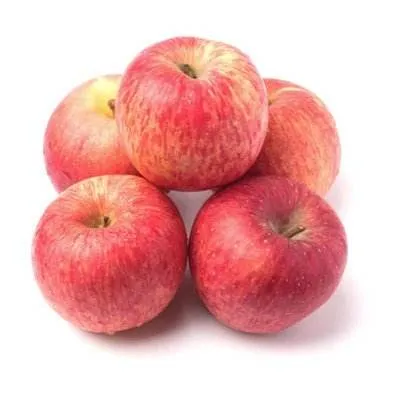Modern Technologies Revolutionizing Apple Export Processing
The global trade of exported apples represents a significant portion of the international fruit market, with millions of tons of apples crossing borders annually. Maintaining the pristine quality, crisp texture, and delectable taste of exported apples requires sophisticated processing methods that combine traditional wisdom with cutting-edge technology. As consumer demand for fresh, high-quality fruit continues to rise worldwide, processors and exporters must employ advanced techniques to ensure apples reach their destination in perfect condition.
The journey of exported apples from orchard to international markets involves multiple critical stages, each requiring careful attention to preserve their natural characteristics. Success in the global apple trade depends heavily on implementing the right combination of processing methods, storage solutions, and handling procedures. Let's explore the comprehensive approaches that industry leaders use to maintain apple quality throughout the export process.
Essential Pre-Export Processing Techniques
Controlled Atmosphere Storage Systems
At the heart of successful apple export operations lies the sophisticated controlled atmosphere (CA) storage technology. This advanced system precisely manages oxygen, carbon dioxide, and nitrogen levels to dramatically slow the ripening process of exported apples. The carefully calibrated environment typically maintains oxygen levels between 1-2% and carbon dioxide levels between 0.5-3%, depending on the apple variety.
Modern CA facilities also incorporate smart monitoring systems that continuously adjust storage conditions based on real-time fruit respiration data. This dynamic approach ensures optimal preservation while preventing common storage disorders that can affect exported apples, such as superficial scald or internal browning.
Advanced Sorting and Grading Technology
The implementation of automated sorting and grading systems represents a crucial step in processing exported apples. These systems utilize advanced imaging technology and artificial intelligence to assess each apple's size, color, shape, and potential defects with remarkable accuracy. The precision of these systems ensures that only apples meeting strict export quality standards are selected for international shipment.
Modern sorting lines can process thousands of apples per hour while maintaining gentle handling procedures to prevent bruising or damage. This combination of speed and care is essential for maintaining the quality of exported apples while meeting the high-volume demands of international markets.
Innovative Packaging Solutions
Modified Atmosphere Packaging
Modified Atmosphere Packaging (MAP) technology has revolutionized how exported apples are packaged for long-distance transportation. This sophisticated packaging method creates a protective microenvironment around the fruit, carefully controlling gas exchange to optimize preservation. The specially designed films and containers used in MAP systems help maintain ideal humidity levels while preventing moisture condensation.
Recent advancements in MAP technology include the development of smart films that adapt their permeability based on temperature fluctuations, providing superior protection for exported apples during variable transportation conditions. These innovative materials help extend shelf life while preserving the fruit's natural flavor profile.
Sustainable Packaging Developments
The apple export industry is increasingly embracing sustainable packaging solutions that protect both product quality and environmental interests. New biodegradable materials and recyclable designs are being implemented without compromising the preservation capabilities required for exported apples. These eco-friendly options include cornstarch-based cushioning materials and recycled cardboard containers with specialized protective coatings.
Advanced ventilation designs in sustainable packaging help maintain optimal airflow while reducing the need for additional cooling energy during transportation. This approach not only preserves the freshness of exported apples but also reduces the overall carbon footprint of the export process.

Temperature Management Protocols
Rapid Cooling Technologies
Immediate post-harvest cooling is crucial for maintaining the quality of exported apples. Modern facilities employ various rapid cooling methods, including forced-air cooling and hydrocooling systems, to quickly bring fruit temperature down to optimal storage levels. These systems can reduce apple core temperature to the ideal range of 30-32°F (-1 to 0°C) within hours of harvest.
Advanced temperature monitoring systems using IoT sensors provide real-time data throughout the cooling process, ensuring exported apples maintain consistent temperature levels. This precise control helps prevent temperature-related quality issues and extends the fruit's storage life.
Cold Chain Management Systems
Maintaining an unbroken cold chain is essential for preserving the quality of exported apples from packing house to final destination. Modern cold chain management integrates smart monitoring devices and blockchain technology to track temperature conditions throughout the entire journey. These systems provide instant alerts if temperature deviations occur, allowing for immediate corrective actions.
The latest refrigerated containers used for exported apples feature advanced temperature control systems that can maintain precise conditions despite external environmental changes. These containers often include backup power systems and remote monitoring capabilities to ensure consistent temperature control during long-distance transportation.
Quality Assurance and Monitoring
Non-Destructive Testing Methods
Advanced non-destructive testing technologies allow exporters to assess the internal quality of apples without damaging the fruit. Near-infrared spectroscopy and acoustic firmness testing provide detailed information about sugar content, firmness, and potential internal disorders of exported apples. These methods help ensure only the highest quality fruit enters the export stream.
Real-time monitoring systems continuously track quality parameters throughout the storage and transportation process, allowing for proactive quality management of exported apples. This data-driven approach helps optimize processing methods and reduce quality-related losses.
Traceability Systems
Modern traceability systems provide comprehensive tracking of exported apples from orchard to retail shelf. These systems incorporate QR codes, RFID tags, and blockchain technology to maintain detailed records of handling procedures, storage conditions, and quality parameters throughout the export journey. This level of transparency helps maintain quality standards and builds trust with international buyers.
Advanced data analytics help identify patterns and potential issues in the processing chain, allowing exporters to continuously improve their methods for handling exported apples. This systematic approach to quality management helps ensure consistent product excellence across all shipments.
Frequently Asked Questions
How long can exported apples maintain their freshness using modern processing methods?
With proper implementation of controlled atmosphere storage and advanced processing techniques, exported apples can maintain their freshness for up to 12 months. However, optimal results typically range between 6-9 months, depending on the apple variety and specific storage conditions used.
What temperature is ideal for storing exported apples?
The ideal storage temperature for exported apples is between 30-32°F (-1 to 0°C) with relative humidity of 90-95%. This temperature range, combined with proper atmosphere control, provides the best conditions for long-term storage and quality maintenance.
How do sustainable packaging solutions affect the quality of exported apples?
Modern sustainable packaging solutions are designed to maintain the same high level of protection as traditional materials while reducing environmental impact. These materials undergo rigorous testing to ensure they provide adequate protection for exported apples throughout the supply chain, including moisture control and impact resistance.
What role does artificial intelligence play in apple export processing?
Artificial intelligence significantly enhances the efficiency and accuracy of apple export processing through automated sorting, quality assessment, and predictive maintenance of storage systems. AI-powered systems can analyze thousands of data points per second to optimize storage conditions and identify potential quality issues before they affect exported apples.

